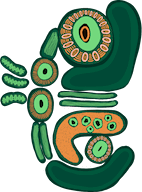
Healthy mouth habits leading up to the festive season
In recent years, we’ve come to appreciate more and more the mouth/body connection and its effect on our health. Put simply, if our mouth is not healthy, we are at higher risk of developing a range of health conditions. Heart disease, diabetes, pregnancy and birth complications, as well as respiratory diseases, are more common in people who have poor oral health. Many of us can take positive steps towards having a healthy mouth with small progressive, daily changes in what we do, rather than aiming for too much change all at once. You can book an appointment today with your dentist to understand more about what you can do to improve your mouth and body health.
But I deserve a break over the holidays!
As we head towards the festive season, we’re all entitled to being more relaxed and taking time out of our usual busy routines. But there are some habits which we shouldn’t neglect, no matter what the time of year.
Science does not take holidays and the same evidence which applies in every other month also applies in December. In the same way that we need to always wear a seat belt when we’re in a car and use sun protection when we’re outside, we need to maintain our oral hygiene throughout the year.
Top 10 tips for a healthy mouth
- Prioritise your oral health. Appreciate the value of what you can do every day, to keep your mouth healthy between dental visits. Ideally, you’ll work in partnership with your dentist.
- Brush your teeth and gums twice each day with a fluoridated toothpaste and floss daily. If you’re going away, or likely to be out for hours, pack a spare toothbrush, toothpaste and some floss. In the same way you may shower and freshen up before you go out, it can help to brush and floss before you leave the house.
- If you can’t brush between meals, swish your mouth with water. Make sure you’re drinking plenty of water to help your saliva maintain its protective qualities. Ideally, saliva is clear and thin.
- Keep an eye on the amount of sugar you and your family are eating. Remember, ‘hidden’ sugar is just as damaging to teeth as foods with more visible sugar. Get into the habit of reading food labels to understand more about added and naturally occurring sugars.
- Try to limit snacking in-between meals. Frequent grazing and snacking increase the risk of tooth decay, because the acid level in the mouth automatically increases to start digesting every time we eat.
- Consider the value of your own behaviour when it comes to oral health care. Small messages can have a big impact. Saying “no thanks, I’ve just brushed my teeth”, when offered sweet treats is a positive message when role modelled.
- Reach for water if you’re thirsty and avoid having too many sweet drinks, including soft drinks, cordial, and energy drinks. They all contain sugar in various forms, and some include electrolytes, which cause decay.
- Make sure your guests have healthy food and drink choices if you’re entertaining. Vegetable platters and cheeseboards can be decorated with a bit of festive flair. Given the choice, many people will opt for healthy snacks in favour of those which aren’t so ideal.
- Watch your intake of acidic foods – these can damage the protective enamel which covers the surface of the teeth. Fizzy soft drinks, sour lollies, citrus fruits are all acidic. Use a straw if you’re keen for a sweet or fizzy drink and swish your mouth with water afterwards.
- Enjoy alcohol in moderation. Plan for what you’ll be drinking and rinse your mouth with water afterwards. Avoid brushing your teeth for 30 minutes to one hour after eating or drinking to limit damage to your tooth enamel.
Continue your healthy habits over the festive season and book an appointment with your dentist before the end of the year to check your dental health.
